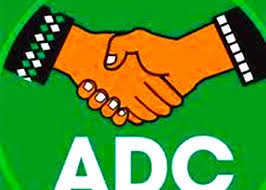Omoruyi John was unhappy on his way home. The unhappiness stemmed from the fact that out of the N5 billon the Federal Government gave Edo State as subsidy palliatives, Governor Godwin Obaseki could only give him just N200 per day, which is the transport fare he would have paid had the state-owned Edo City Transport Limited (ECTS) collected the usual fare of N100 to his destination and N100 back home.
“So, out of the N5 billion FG gave Edo State, Obaseki could only give me N200 per day? “John said in annoyance, while other passengers responded that the governor and his team will “pocket” most of the money. The conversation continued as more passengers agreed with him that the bulk of the FG palliatives will be pocketed by the governor and his team.
However, an analysis carried out by the Economic and Market Research Unit of the Nigerian Observer pointed to the contrary. In fact, the Edo State government, in addition to the N5 billion released by the Federal Government, will have to spend extra N5.08 billion to sustain the project for two months provided only 840,000 Edo residents benefited from the free bus services during the period. The total cost to Edo State will be higher if more than 840,000 Edo residents benefited from the scheme.
The 840,000 estimate represents 60 percent, or six out of 10 multi-dimensionally poor people in Edo State, according to the state’s Multidimensional Poverty Index released by the National Bureau of Statistics (NBS) in 2022.
Flagging off the two-month free bus service on September 11, 2023, the state government mentioned some important routes where the free bus services would be offered.
“The free transport scheme is expected to cover intra-city and intercity routes including Auchi – Igarra – Ibillo–Ososo; Uzebba–Ikhin – Otuo, and Abudu-Ubiaja, Abudu-Urhonigbe and Ewohirin to Ewatto.
“The intra-city routes are Ramat–Kingsquare; New Benin–Kingsquare; Kingsquare – Ekenwan Road; Kingsquare–Airport Road; Kingsquare–Sapele Road and Kingsquare – Adesuwa, Kingsquare–Ogida; New Benin – Upper Mission; Kingsquare–Ugbowo; Kingsquare–Agbor Road; Kingsquare–Upper Sokponba; New Benin – Ugbowo and New Benin–Aduwawa,” Edo State announced on September 11.”
The NBS reported in 2022 that there are 1.4 million people in Edo State who are multi-dimensionally poor. Assuming the state government decided to share the N5 billion FG palliatives equally among all of them, this will amount to N3,571.43 per person. Since our assumption used 840,000 poor Edo residents, this will amount to N5,952.38 per person or N99.21 per day for the two-month period the free bus ride will run.
The least transport fare charged by the Edo-owned transport company is N100 per trip, which amounts to N200 per day on a return journey. On September 11, 2023, when the programme commenced, 23,500 Edo residents patronised the state-owned buses.
“Over 23,500 residents of Edo State have benefited from the free transport service of the Edo State Governor, Mr. Godwin Obaseki, in the first 24 hours of the commencement of the scheme, aimed at cushioning the effect of the fuel subsidy removal by the Federal Government on the people of the state,” Edo State government announced on September 12.
As awareness spreads, queues are already building up at some of the designated take-off points as we expect more residents to patronise the free bus ride.
Even if the level of the first day’s patronage of 23,500 passengers is sustained for 60 days, this will translate to 1.41 million Edo residents benefiting from the scheme in two months.
At the rate of N200 per Edo resident per day for 60 days, the Governor Obaseki-led government in Edo State will spend a total of N12,000 per person during the two-month free bus ride period. This will amount to N10.08 billion on 840,000 Edo residents at the cost of N200 per passenger from his or her residence to their destinations and back home for the two-month period.
The FG’s N5 billion palliatives amount to N5,952.38 per Edo residents assuming it is only for 840,000 who are 60 percent of the multi-dimensionally poor people in Edo State. This also amounts to N99.21 per day for the two-month period of the free bus ride scheme.
In effect, the FG’s N5 billion palliatives will give each of the 840,000 multidimensionally poor Edo resident N99.21 per day for two months while the Edo State’s free bus ride scheme will give the same number of people at least N200 per day for the same duration, thereby resulting in an extra budgetary spending of N100.79 per day and N5.08 billion in two months from the Edo State government’s coffers, the Nigerian Observer can reveal authoritatively.
“Governor Obaseki should have considered another project other than the free bus service, because after two months, the status quo returns. People will come back to face the high cost of living. He should have invested the money in agriculture,” Imade Favour, another passenger, suggested.
It should be recalled that following the removal of subsidy on the premium motor spirit otherwise known as petrol, the cost of living in Nigeria has gone up astronomically with both the headline and food inflation rates reaching 25.80 percent and 29.34 percent in August 2023, respectively.
As a countermeasure, the Federal Government released N5 billion each to every state of the federation and FCT Abuja. This is in addition to other food items like rice among others.


